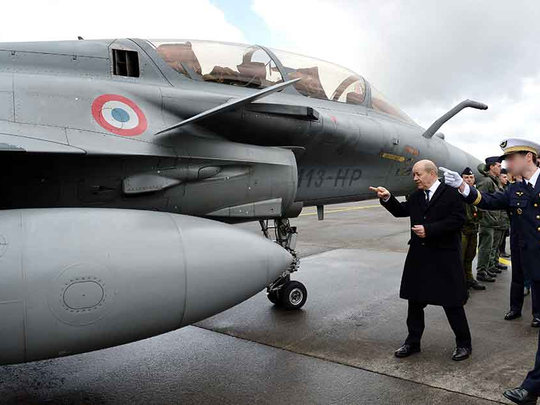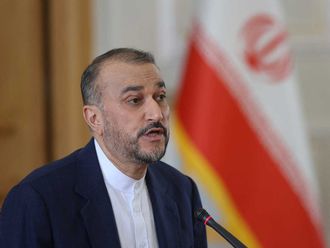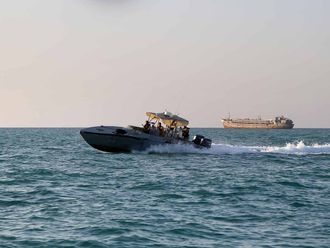
Cairo: Egypt’s decision to buy 24 Rafale jet fighters from France underscores its determination to diversify its sources of weapons and reduce its dependence on the United States, experts said.
The 5.2-billion-euro ($5.9 billion) deal is a historic first foreign sale of the Rafale for France, which is set to sign the contract in the Egyptian capital on Monday.
Rights group Amnesty International has criticised the sale of the jets and a frigate to a nation that it has accused of “alarming” human rights abuses.
The United States - a long-time strategic partner of Egypt, to which it gives about $1.5 billion in aid each year including roughly $1.3 billion in military assistance - has played down the impact of the sale.
“Egypt is a sovereign country,” State Department spokeswoman Jen Psaki said on Friday. “We have our own security relationship, so I wouldn’t say there’s a concern from this end.”
US-Egyptian relations have been strained since the military deposed Islamist president Mohammad Mursi in July 2013 and launched a brutal crackdown on his supporters.
Morsi, the country’s first freely elected head of state, was toppled by then army chief and now President Abdul Fattah Al Sissi following massive protests against his controversial one-year rule.
Al Sissi was elected president in May 2014 with 96.91 percent of the vote.
The clampdown on Muslim Brotherhood supporters prompted Washington to freeze part of its aid to Cairo in October 2013 and demand that Egypt implement democratic reforms.
“The contract (with France) is an implicit message to the United States signifying that Egypt will no longer count exclusively on US weapon supplies,” said retired Egyptian army general Mohammed Mujahid Al Zayyat.
Egypt no longer wants to be “blackmailed” in its relations with the United States, said Al Zayyat, an expert with the Cairo-based National Centre for Middle East Studies.
US officials “have their own views as to how the Egyptian army should be rebuilt and reject the army’s belief that Israel is its key enemy,” he added.
Egypt signed a peace treaty with Israel in 1979 but relations between the two neighbours have never been fully developed and remain frosty over Israeli policies towards the Palestinians.
Washington has tried to balance its defence relationship with criticism of alleged human rights violations by the Egyptian government.
It recently delivered to Cairo a shipment of Apache helicopter gunships, supposedly for use in counterterrorism operations, while also denouncing mass convictions of Al Sissi’s opponents.
Military expert and retired army officer Ahmad Abdul Halim said Egypt was being held “hostage” by Washington because of its human rights record, and needed to diversify its sources of weaponry.
“The diversification of the supply of weapons and technology is aimed at dissuading any country from exercising a monopoly over Egypt or of trying to blackmail it,” he said.
Abdul Halim, a former president of the national security commission at the Egyptian senate, said Egypt would continue to import weapons from the United States, as well as France and “maybe even China”.
Russia, he said, could be another key supplier.












